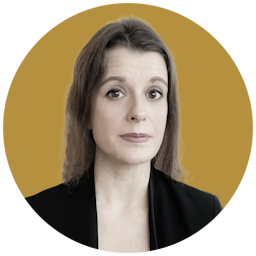Is Germany Seeking a Separate Peace in the East?
This article is from the archive of The New York Sun before the launch of its new website in 2022. The Sun has neither altered nor updated such articles but will seek to correct any errors, mis-categorizations or other problems introduced during transfer.


A rebuke Saturday by Germany of draft plans by the European Commission to include nuclear energy in its taxonomy of green investments is more than a squabble over energy politics. It could signal displeasure with EU members pursuing policies independent of Berlin and might portend a separate peace.
The glimmer of a disparate policy course in Berlin is all the more newsworthy because it is emerging under Germany’s new leftist chancellor, Olaf Scholz, and a foreign minister, Annalena Baerbock, who is a member of the Green party. Could this be the beginning of a Europe even more divided?
The question arises as Ms. Baerbock is due to arrive in Washington tomorrow for a meeting with Secretary of State Blinken. He entered the policy debate as a young scholar with a book, issued in 1987, called “Ally Versus Ally” about America, Europe, and the Siberian pipeline.
Their meeting will take place against the backdrop of an unabating European energy crisis coupled with –– or, indeed, partially prompted by –– EU plans to reach net-zero emissions by 2050. That’s a goal that such renewable sources as solar and wind alone cannot achieve.
It is also set against the specter of a new Russian pipeline, Nordstream 2, that risks deepening European dependence on the Kremlin. Advances made by Communist China in the development of new nuclear and other advanced energy technologies further complicate Europe’s already ominous energy predicament.
Should the European Commission’s proposal be approved later this year, it could ostensibly provide some relief, facilitating a degree of EU energy security while the region pursues its long-term climate objectives. The proposal itself notes that nuclear should be used as a “transition” fuel. Surely such an approach should satisfy everyone?
Not the Germans, whose leadership is singing a different tune. As its grand finale to 2021, the German government shut down half of its six remaining nuclear plants. It plans to decommission the rest by the end of this year. That would leave the country to rely instead on natural gas until it can fully transition to other renewable sources.
What a curious decision. Yet when taken together with some of Berlin’s other, more recent, policy overtures, its decisions on energy begin to paint a startling geopolitical picture. Already in 2020 Herr Scholz was calling for a new Ostpolitik defined by “multiple centers of power in the West and the East” that “takes Russia’s interests into account.”
Mr. Scholz reiterated that sentiment in his New Year’s Eve address. “A new era is dawning,” Mr. Scholz said. Germany’s Bild newspaper is reporting that Mr. Scholz and President Putin are scheduled to meet later this month. Mr. Scholz is seeking a “qualified new beginning” in relations between Berlin and Moscow, according to reports.
Is it a coincidence that Mr. Scholz’s choice of words mirror those often lobbed by the Kremlin? Mr. Putin has long extolled the virtues of multilateralism, shaped by his ambition to shift the global system away from an American-dominated unipolar order. His military threats against Ukraine and recently issued ultimatums fit that strategy.
Two draft treaties made public in December –– one between Russia and the United States, and one between Russia and NATO –– ostensibly invite America to “keep quiet on its islands.” And this means “the ‘American world’ for Russia has ceased to exist,” according to the Russian digital newspaper, Vzglyad. It is the beginning of “a new political era.”
Is this the “new beginning” that Mr. Scholz also seeks? Surely history has by now taught that the Kremlin is seldom interested in amicable resets. Mr. Putin demands results, ones that Berlin alone cannot deliver –– except, perhaps, to drive a deeper wedge into Europe.
Mr. Scholz also appears quite chummy with Beijing. President Xi was among the first world leaders to congratulate Mr. Scholz on his inauguration. Messrs. Scholz and Xi have personal ties that date to at least 2017, when the two met at a G7 gathering.
In their first telephone conversation, Mr. Scholz called for deeper economic ties and the revival, “as soon as possible,” of an EU-China investment deal that has been on hold since March 2021 over concerns about the genocide in Xinjiang –– an issue that Mr. Scholz failed to raise.
Should Mr. Scholz persist, he would risk spurring tensions with his foreign minister, Annalena Baerbock, who has voiced a more hawkish posture towards both Beijing and Moscow. Mr. Scholz also risks fragmenting an already nervous Europe, whose trust in Germany is low, and some of whose leaders have begun to push back on Russian and Communist Chinese pressures.
Even more, Mr. Scholz’s advances threaten to undermine the global democratic order. Rather than an asset, Germany could become a problem — not only for Europe but for America. The greatest hope, then, is that Berlin’s policies are in fact not guided by Russian interests and that Mr. Scholz revokes his “reset” plans. He wouldn’t be the first to do so. Just ask Secretary Clinton.
________
Ms. Gadzala-Tirziu is a contributing editor of The New York Sun. @awgadzala
Drawing by Elliott Banfield, courtesy of the artist.

